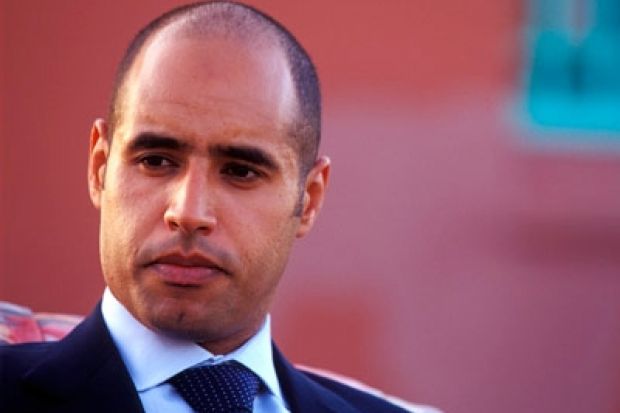Observers have downplayed the seriousness of the revelations about Saif al-Islam Gaddafi's use of an international consultancy to carry out research for his doctorate at the London School of Economics.
The son of Libyan leader Mu'ammer Gaddafi attended the LSE between 2003 and 2008, gaining a PhD for his thesis on the role of civil society in the democratisation of global governance institutions.
Last week, it was reported that Dr Gaddafi had employed US-based lobbying firm Monitor Group to carry out interviews for his thesis.
The group also ran a campaign to rehabilitate the image of Colonel Gaddafi by paying top academics to travel to Libya to meet him.
It has emerged that Dr Gaddafi's external examiner, Anthony McGrew, professor of politics and international relations at the University of Southampton, had collaborated on research with David Held, who acted as one of Dr Gaddafi's informal supervisors. They have co-written and co-edited several books - two in 2007, the year Dr Gaddafi submitted his thesis.
The LSE has confirmed that it is investigating allegations that Dr Gaddafi's thesis contained more than a dozen instances of plagiarism.
One senior figure said that any indication of unattributed material in a PhD should result in an automatic fail.
However, Robert Dingwall, professor of social sciences at Nottingham Trent University, said the plagiarism allegations sounded "a bit dragged up". He said international students often covered their limited fluency in English by "extensive quotation", for which they were often given "a bit more latitude" by examiners if their viva performance was convincing.
He also said there was nothing wrong with PhD students getting help with data collection, provided this was made clear in their theses.
Caroline Glendinning, chair of the UK Social Policy Association and professor of social policy at the University of York, added that doctoral theses often presented students' own analyses of data collected by others as part of larger projects.
"It is unfair if wealthy students are able to pay large amounts of money to get someone else to do that work - but no more unfair than the fact that wealthy students are already more able than poorer students to fund their own PhDs," she said.
She added that it was often hard to find an external examiner who had no connection to a student's supervisor when theses were on relatively specialised subjects or used specialised methodologies.
The LSE said it could not comment during the inquiry.
Register to continue
Why register?
- Registration is free and only takes a moment
- Once registered, you can read 3 articles a month
- Sign up for our newsletter
Subscribe
Or subscribe for unlimited access to:
- Unlimited access to news, views, insights & reviews
- Digital editions
- Digital access to THE’s university and college rankings analysis
Already registered or a current subscriber? Login
